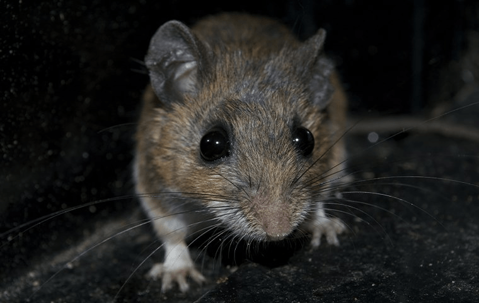Some pests wander into homes; other pests invade with purpose. Rodents are a great example of pests that actively decide they want to live indoors. They might not know at first that your home is a comfortable paradise, but with one whiff of tasty food, a breeze of warm air on a cold day, or the discovery of a way inside, and these pests invade. If you are looking for a clever way to stop rodents before they decide to take over your Greensboro home, here is a helpful guide
The Most Common Rodent Invaders
Not all rodents invade homes. In fact, out of the many species in our area, only three commonly cause trouble around properties — roof rats, Norway rats, and house mice. Here is how to identify each of these furry intruders.
House Mice
House mice are small rodents that only grow to be two and one-half to three and three-quarters inches in length. You can further identify this adorable yet troublesome home invader by its dusty grey fur, blunt round body, large ears, beady red or black eyes, long thinly-haired tail, and cream-colored belly.
Roof Rats
Roof rats are a smaller species of home-invading rats and usually stop growing at around six to eight inches. This agile pest has brown to black intermixed fur, a thin body, long, scaly tail, large ears, black eyes, and grey, white, or black underside.
Norway Rats
Norway rats are the most common home-invading rats in our area and can grow to nine inches long. This intelligent pest has brown fur with scattered black hairs, a long heavy body, large ears, black eyes, long, scaly tail, and a grey to white underside.
Problems Rodents Cause
Rodents cause trouble in three ways — with their teeth, with their unhealthy lifestyle, and with their lack of common courtesy. To make things simple for you, let’s break down each of these three problems.
All rodents are brown with sharp, strong, continually growing front teeth. In order to keep these teeth at a reasonable length, rodents chew on things constantly. Around homes, mice and rats will chew holes through walls, gnaw on furniture, tear up insulation, sever electrical wires, damage utility pipes, and generally cause damage wherever they roam.
Rodents do not watch what they eat. Most often, the diet of a rat or mouse consists of rotting bacteria-ridden foods. By eating these things, rodents tend to pick up a few dangerous diseases. Some of the most common diseases rodents spread throughout homes include salmonellosis and rat-bite fever.
Finally, rodents are noisy. Due to their nocturnal nature, rats and mice will scurry around homes at all hours of the night. If you are a light sleeper, you might notice yourself having a hard time resting with these pests around.
How To Handle Rodents
If rodents are not currently scurrying around or inside your home, here are a few DIY prevention tips our experts recommend you use.
- Seal your home’s exterior foundation using caulking.
- Repair damage to window and door screens and door sweeps.
- Remove clutter and debris from your property.
- Store firewood at least 30 feet from your home.
- Clean indoors regularly and thoroughly.
- Store food away properly inside rodent-proof containers.
- Make sure your trash cans have tight-fitting lids.
To take your rodent control to the next level or to have an infestation removed from your home, contact the professionals at Go-Forth Home Services. Our team understands rodents and knows the best methods of getting and keeping these pests out of your home.
Contact us today to learn more about our comprehensive pest control services or to schedule a rodent inspection for your Greensboro property.

